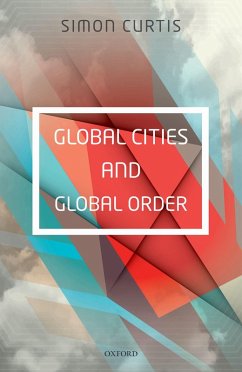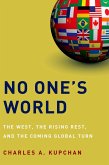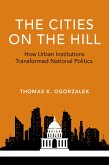The re-emergence of the city from the long shadow of the state in the late-twentieth century was facilitated by the state itself. The unprecedented size and scale of today's global cities and mega cities owe their conditions of possibility to a fundamental shift in the character of political order at the level of the international system. This book argues that we must understand the rise of the global city as part of a wider process of the transformation of international political order, and of the character of international society. Global cities are an inscription of the ideals of a market society in space, constructed and defended at the level of international society. They embody the ascendance of a set of liberal principles at a certain moment in history - a moment related to the hegemonic status of leading states in the second half of the twentieth century, and the ability of those states to shape international norms. But the evolution of these urban forms has also reflected the tendency for deregulated markets to generate inequality and polarisation: these features are also inscribed in the spaces of global cities. Global cities focus and amplify the tensions and contradictions within the contemporary international system, and become key strategic sites for struggles over social justice and the character of political life in the twenty-first century. Global Cities and Global Order demonstrates the significance of the re-emergence of cities from the long shadow of the nation-state is far-reaching. Only by examining the mechanisms by which cities have become empowered in the last few decades can we understand their new functions and capabilities in global politics.
Dieser Download kann aus rechtlichen Gründen nur mit Rechnungsadresse in A, B, BG, CY, CZ, D, DK, EW, E, FIN, F, GR, HR, H, IRL, I, LT, L, LR, M, NL, PL, P, R, S, SLO, SK ausgeliefert werden.









